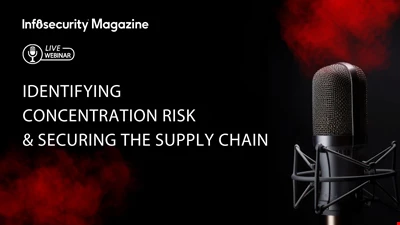Infosecurity News
Jericho Forum links with Cloud Security Alliance
Hard on the heels of unveiling Cloud Cube, its four-dimensional best practice model for cloud computing security in April, security industry association the Jericho Forum has linked with the Cloud Security Alliance (CSA), a not-for-profit vendor group.
Open Group advises on risk management methods
Independent consortium the Open Group is trying to resolve what it sees as confusion about risk management in the industry by publishing a guide to choosing a risk management methodology.
RAF data loss included sensitive vetting data
The Ministry of Defence (MoD) has omitted information that the theft of hard drives in September 2008 with data on RAF personnel also included highly sensitive RAF vetting records.
Anti-malware groups align themselves
Anti-malware efforts took a significant step forward this week with the announcement of an initiative to try and bring legitimate software businesses together and lock out malware writers.
£3.9 million bank credit error highlights need for code auditing
A succession of errors - at the programme code development level and human error when inputting the data - are reported to have resulted in a New Zealand couple being credited with NZ$10 million (£3.9 million) rather than a much smaller sum as the proceeds of a bank credit line.
Survey shows information security awareness is high, yet compliance is low
SAI Global’s Benchmarking Survey 2008 finds that 95% of employees believe information security is important, but that there is a lack of knowledge and training surrounding how to identify and report incidents.
Gumblar malware attack sweeps web
A modified attack that alters Google searches is taking the web by storm according to security researchers, who have identified more malware domains being used in the attack.
McAfee acquires Solidcore for whitelisting technology
McAfee will acquire Solidcore Systems, a whitelisting specialist, in a US$33m deal which will allow McAfee to integrate Solidcore's technology into its blacklisting malware detection and prevention products, as well as to bolster its high-end corporate IT security offerings.

Gateshead College opens digital forensics lab
Gateshead College in the UK has opened a digital forensics lab for the training of information security staff to combat cybercrime such as digital fraud.
Infosecurity Weekly Brief - May 18 2009
Infections, Intrusions, Protections and Misdirections
Paypal registration page vulnerabilities revealed
Methodman, a so-called 'grey hat' hacker specialising in discovering cross-site scripting (XSS) flaws, claims to have uncovered a number of XSS security flaws in various Paypal registration pages.
Australian two-factor payment card authentication technology on beta test
A two-factor authentication system - complete with keypad and display - has been successfully integrated into a plastic payment card by Melbourne-based EMUE and is being trialled by MBNA in the UK
Software piracy on the rise
Worldwide software piracy is on the rise, according to a study by the Business Software Alliance and analyst firm IDC.
Estonia now firmly on the FBI cybercrime map
The importance of Estonia, one of the most Internet-connected and e-trading nations on earth, has ramped up a notch or two with the FBI, which has announced plans to station a cybercrime expert and his/her team in the country later this year.
Forrester questions the security of cloud computing
With the economic downturn, cloud computing is seen as a way to improve operational efficiency, reduce headcounts and help with the bottom line, but according to the report from Massachusetts-based Forrester Research on cloud computing, organisations should not jump on the ‘cloud wagon’ before considering security and privacy concerns.
Infosecurity Weekly Brief - May 12th 2009
Danny Bradbury rounds up the most important news in the security space from the last week.

Swine flu challenges information security
The recent outbreak of swine flu has thrown up a number of topics related to information security ranging from secure sharing of data between health professionals, to spam / phishing and issues around remote working.
Information security technology not enough
Information security technology is of little use if employees unwittingly give up log-in details, passwords and other sensitive information to hackers using social engineering.
Heartland takes US$12.6m hit for breach
Heartland Payment Systems has revealed that it lost US$12.6m as a result of its 2008 data breach, in the same week that it finally regained official Payment Card Industry Data Security standard (PCI DSS) compliance.
Fake search engines used to divert users to malware infected websites
Hackers are starting to create fake search engine sites to divert hapless internet users to malware infected websites, says PandaLabs, the research operation of Panda Security.



